From what to pack and what you need to know before you go, to searching Dublin records and making contact with the locals in your ancestral home, an expert’s top advice
So that time has finally come for you to fly to Ireland and find the homeplace of your Irish ancestor. The advice offered in this article has been developed over years of working with individuals and groups researching their roots in Ireland.
Preparation for your adventure can be divided into three stages:
READY?

Don't forget to pack for the Irish weather!
As with any trip to Europe, be sure your passport is up-to-date, you have travel insurance, and copies of your medical prescriptions in case you lose them.
It is Ireland after all, so pack for the weather - a raincoat and umbrella are essential.
Be well rested and well prepared.
The basic information you will need before you board the plane is identifying information about the ancestor.
You will need to know:
- birth name
- approximate year of birth
- both parents names
- hopefully county of birth
Spend the time following your ancestor’s paper trail to obtain the essential facts and develop your research plan.
Become familiar with the divisions of Irish land:
Get familiar with how Ireland's land is labelled! 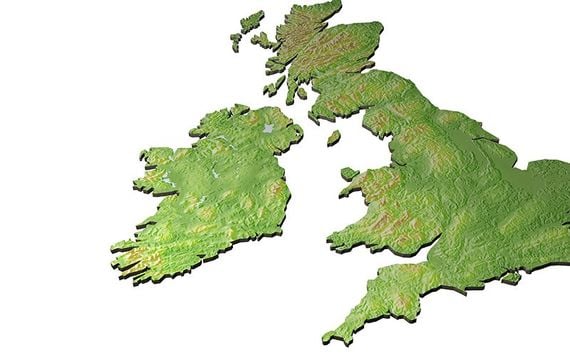
- townland
- civil parish
- Roman Catholic (R.C.) parish
- county
- barony.
A good book on Irish genealogy is an essential tool as is an up-to-date road map.
SET?
Prepare your research materials and include a list of the sources you have already checked so you don’t repeat what you have already done.
Do not bring original documents, photocopies are a safer bet.
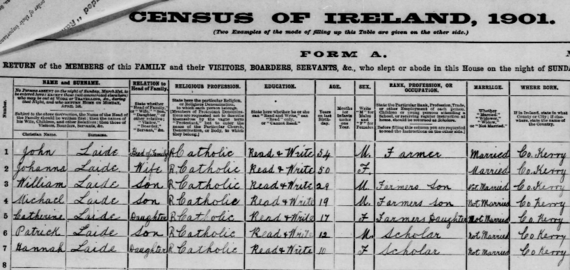
Bring copies of original documents.
If you are lucky enough to meet living relations, you might bring copies of your family photos to share.
A basic principle in genealogy is that when you are generous with information and photos, you will get a great return.
Make a checklist before you go so you don’t forget any essentials.
And yes, your laptop will work in Ireland.
So, now you are ready to…
GO!
You will have already decided on whether you travel alone, with a companion, or with a group. There are benefits with each of these options.
Alone, you will have ultimate freedom, but it may get a bit lonely.
With a companion, hopefully, an enthusiastic one, you can share the experience of the adventure.
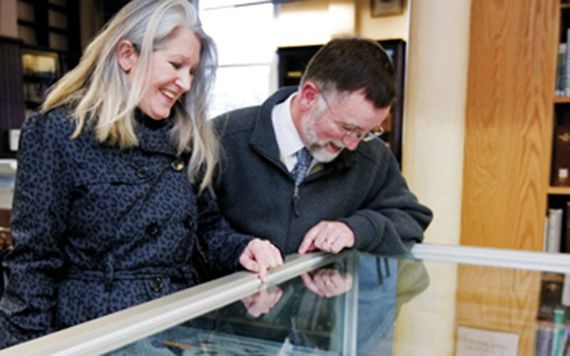
Bring someone who'll be as enthusiastic as you!
Genealogical research groups have become very popular in recent years. Participants benefit from the expert advice of the leaders, guidance in the record repositories and the camaraderie of like-minded enthusiasts.
A well-organized research trip can pay dividends in unearthing lesser-known resources, maximizing your research time, and getting expert advice and encouragement.
What to do when you get there
Avail of the free genealogical advisory services in the National Library of Ireland, in Kildare Street, and the National Archives, in Bishop Street. These in-person consultations can assist you with specific research problems and at both repositories the service is free.

The National Library of Ireland, on Kildare Street, in Dublin.
Doing research in the Irish records repositories can be very satisfying but appreciate that the systems in Ireland may differ from what you are used to at home so be flexible and ask for help if you need it.
Head to the ancestral homestead
Once you have finished your research in Dublin, you may want to rent a car and head out to the counties you have identified as the ancestral home places.
Familiarize yourself with road maps and pace yourself and your traveling companion.
Don’t rush by important heritage sites in your anxiety to get to your goal.
Be sure to enjoy some cultural events such as plays, festivals and local events.
The goal of your research is most probably to “walk the land of your ancestors” which can be an emotional experience.
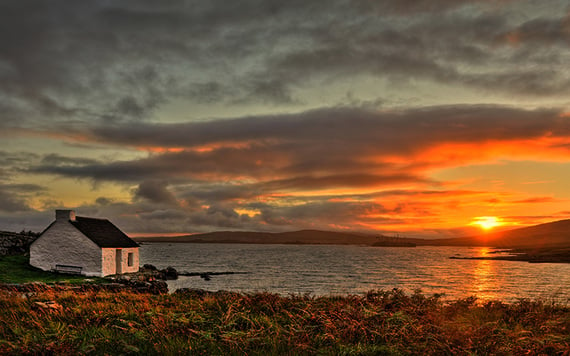
Finding your ancestral home can be quite emotional.
Speaking with the locals
When making local inquiries remember the “3 P’s”: the priest, the post office, and the pub.
When you do find “the place” remember to ask permission from the local farmer before entering private property. Most people will understand why you might want to visit a rundown cottage once you explain who you are.

Talk among the locals and maybe connect with a new found relative.
Many people who succeed in their quest pick up a small pebble or stone near the ruins of the homeplace giving them a tactile reminder of their Irish roots.
Meeting relatives is, of course, the ultimate achievement and the highlight of what can be the most memorable trip of a lifetime.
Have you had success in tracing your Irish roots? Let us know in the comments section below.
*Originally published in 2019, updated in 2024.
* Eileen M. ÓDúill, MA, is a professional genealogist based in Dublin, Ireland. Eileen has over 40 years experience researching in Irish civil records and co-authored
Irish Civil Registration-Where Do I Begin? Council of Irish Genealogical Organizations, 2000 (Dublin, Ireland). She has lectured internationally on Irish genealogy and presented the Ancestry Academy course, “Beginning your Search for Irish Ancestors” on www.ancestry.com . Her area of specialization is in probate genealogy locating rightful heir in over 1000 international estates. She can be contacted at: [email protected].
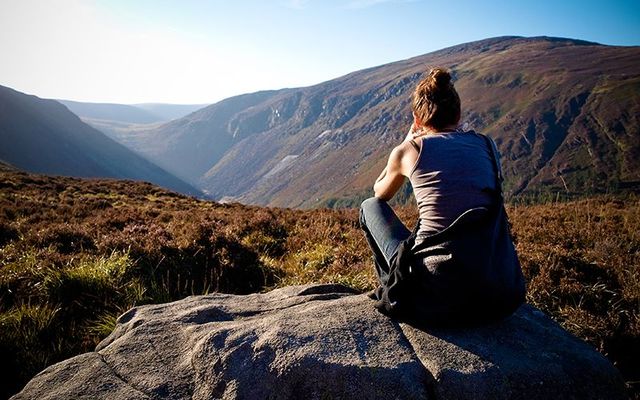



Comments